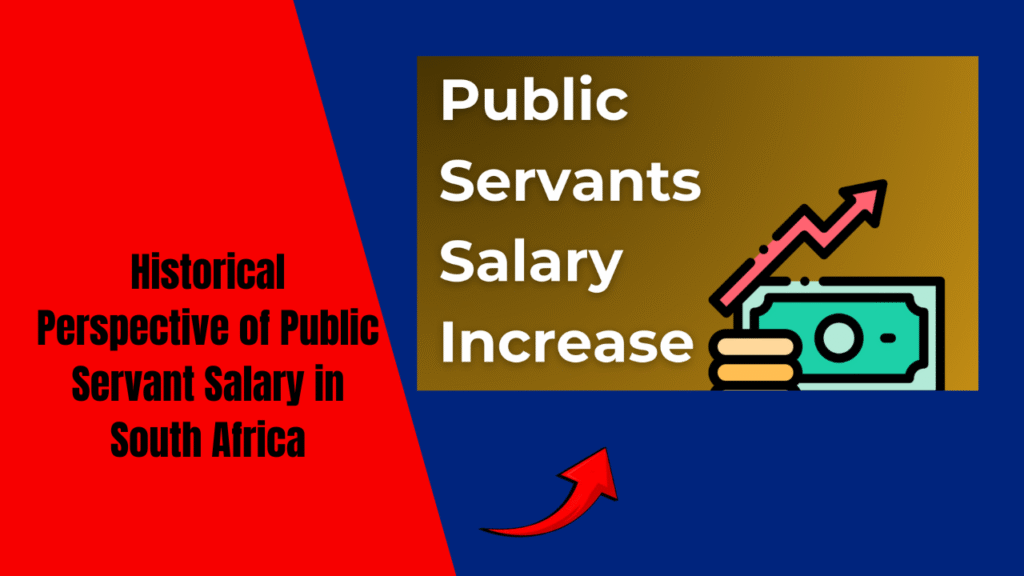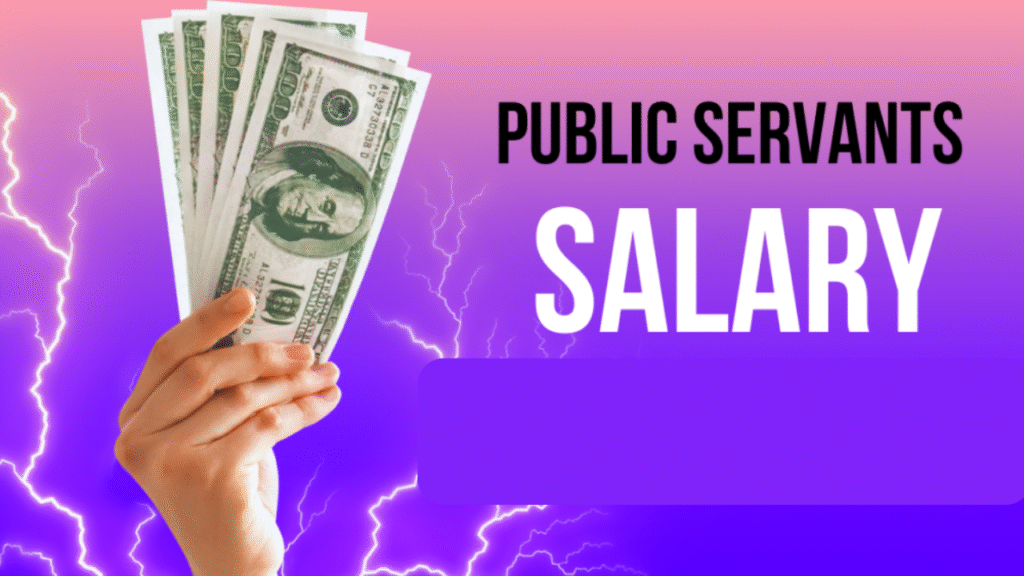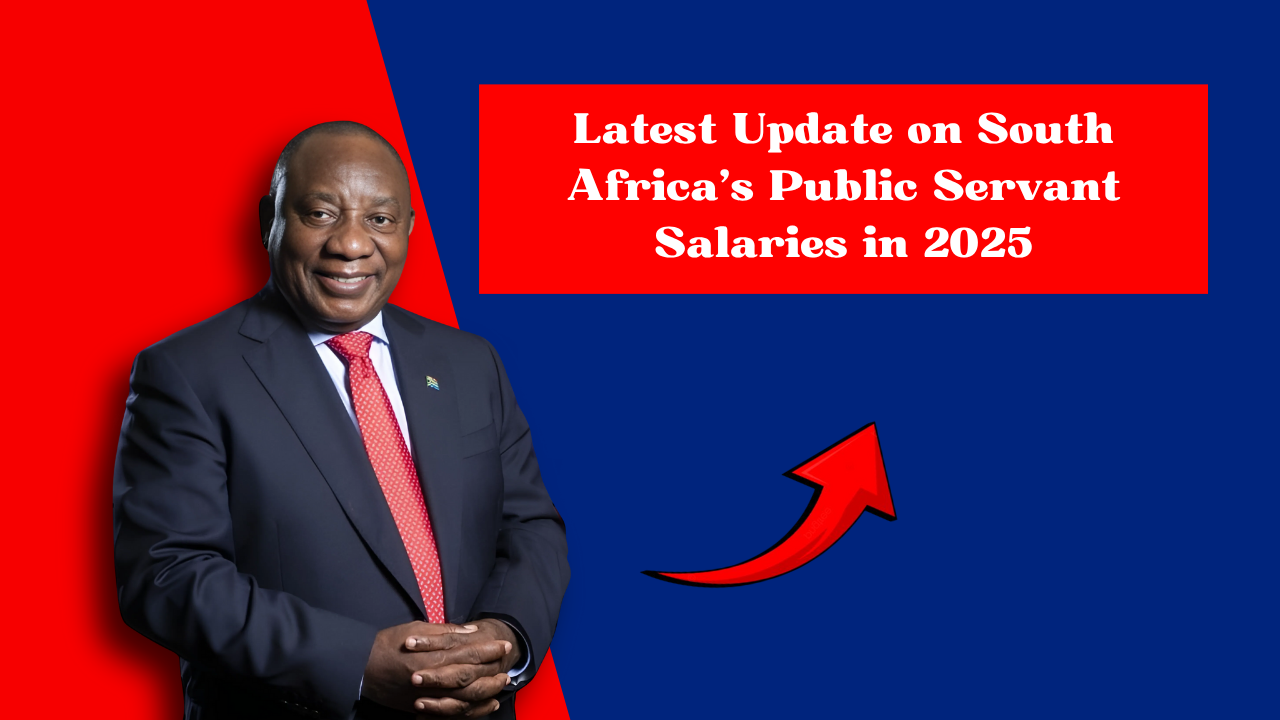- It is in the past couple of years that public servant salaries in South Africa have changed significantly.
- Economic problems, inflationary pressures, and government policies all play a major part in determining the extent to which public sector workers will eventually be compensated.
- As the new year comes nearer, many public servants might be asking, “How will my salary increase in the coming years?”
- This article takes an in-depth look at public servant salaries in South Africa over time, how they have changed over time, and what one can expect for employees moving forward.
While the South African economy continues to face challenges, the improvements within the government show that public servants have indeed been recognized with wages that are probably fair. However, many factors come into play regarding salary increase adjustments, and they could be different from year to year. Salary increases in the private sector as well as in big businesses reflect both the national and international economic factors. Salary increases may include some inflation adjustments and negotiations with trade unions.
Let us break the current status down, give the understanding behind the changes that have taken place, and give some practical guidance as to what salary growth public servants can expect in the coming years.
| Key Point | Details |
|---|---|
| Recent Salary Adjustments | In 2025, public servant salaries in South Africa saw an increase of 5.5%. |
| Impact of Inflation | Inflation rates have eased to 4.4% in 2024, impacting salary increases. |
| Government Proposals | The South African government has been offering salary hikes to meet union demands, with a 5.5% adjustment for 2025. |
| Public Sector Wage Trends | A trend of 5% salary increases is expected in the coming years, resulting in modest real income growth. |
| Expectations for 2025 | A real salary increase of around 1% is expected due to inflation adjustments. |
| Official Sources | Official information on public sector salaries can be accessed on BusinessTech and Bloomberg |
In fact, public servant salaries in South Africa changed significantly in recent years due to factors such as inflation, economic conditions, and government wage policies. While the salaries will increase very slightly in 2025, it holds that real income growth will be relatively modest for public servants. This makes it crucial for public servants to focus on budget-making and capacity development and to remain informed on government policies to take advantage of such provisions. With careful planning and astute financial choices, public servants can prepare for the toughest times ahead.
Historical Perspective of Public Servant Salary in South Africa
Public salaries for South Africa have both increased and stagnated over the last decade. It is over several different economic factors, which include global economic stagnation, rising inflation, and increasing demands for social services. The government had to strike the right balance between compensation for public sector employees and the financial management of the economy.
Inflation and the Economic Challenges
Inflation always plays a major role in deciding salary adjustments. In the year 2023, South Africa witnessed inflationary pressures concerning the price hikes in commodities and services. Therefore, public servant salaries were adjusted to accommodate these changes in 2024, but overall increases were marginally raised at about 5 percent. Indeed, this figure was taken to be reasonable, given the prevailing economic situation.
Until late 2024, inflation rates in South Africa had come down to a level of 4.4 percent, the lowest they had been for years. This offered space for catch-up salary increases, giving public servants a very small boost in real income.

This is a result of the many efforts put forth by trade unions towards achieving a better deal through negotiations, as well as government efforts aimed at stabilizing the economy.
Negotiations and Trade Unions on Wages
One of the crucial processes that form the basis for determining public servant salaries in South Africa is that of wage negotiations. Unionization plays an important role in sourcing fair pay, especially in the hard-going economic conditions lasting into 2024 and 2025: negotiations were held between the government and the unions, finally resulting in an agreement of a 5.5 percent increase in salaries of public sector employees.
There is more to these negotiations than just salary increases: improving working conditions, better benefits, and job security are also issues leveraged. Quite often, the volume of success unions achieve when securing higher salaries gets directly associated with their bargaining power and with the political and economic climate broadly.
In 2024, unions asked for bigger increases by showing that the cost of living had increased too much compared with the salary adjustments offered by the government. Salary packages have, however, seen improvements this time around for 2025, but this has not ended the debate between union representatives and government officials on the demand for further improvements toward better pay equality across public service sectors.
What Public Servants can Expect in 2025
Indeed, with the year of transition approaching again, many public servants would like to look ahead to what might happen as far as changes are concerned. Here is a view on what employees can expect based on the recent trends and government proposals:
Increase Trends in Salary
Public sector salaries are meant to go up by about 5.5% in 2025. This generally fits with inflation expectations and the intention of the government body to offer reasonable remuneration against the general economic scenario at the moment; however, real income growth is likely to be small, as a very small part would be real income increase. Roughly, the public servant could expect real income growth of 1% to 2% after inflation is taken into account.
Government’s Fiscal Constraints
Salary adjustments of the government need to be seen in the larger scheme of fiscal constraints. Over 70% of GDP is now attributable to public debt in South Africa, which places severe constraints on the ability of the country to raise spending, even on public salaries. Much more careful plans for wage hikes have emerged from this.
Five-point-five percentages may appear quite generous within such a frame; however, they are still too little to effect any meaningful changes to the reality of purchasing power for the workers. Public servants might have to adjust their expectations right now and acknowledge that even higher increases may not come in the near future.

Cost of Living Considerations
In South Africa, the cost of living is top among those bargaining chips believed to influence wage negotiations. Indeed, while salary increases are important, they need to be at the same level as the increases in cost for daily items and services. With inflation at about 4.4 percent, many public servants would find that the increases in their salaries would only barely cover a few more things they used to buy at the grocery store or when going to fill their cars.
This means that, for example, if one gets a 5.5% salary increase but inflation is running at 4.4%, then, in reality, buying power will increase by about 1%. This is good, but money would still not be stretching far enough to make a significant difference in wages.
Practical Advice for Public Servants in 2025
- Budget
Modest salary increases would force public servants to focus on efficient budgeting to maximize their earnings. Such priorities include essential expenses and cutting down on discretionary spending, which will assist in easing some of the financial pressure. - Skill Development
Salary increase opportunities may become limited, but personal development, such as skills enhancement, can open avenues for career progression and better pay. Upskilling, certifications, or furthering education will enable a public servant to find higher-paying roles within the public service. Most specialized ones like information technology, engineering, and finance tend to have very good remuneration. - Benefit Awareness
Salary increases are often supplemented by many forms of advantages, such as income protection from pension schemes, health care, and paid leave. Knowing the total value of these benefits is essential since they might add up to significant security in long-term finances.Sometimes, it may exceed salary increases, especially in endowed pension or medical coverage. - Government Announcements Update Keep an eye on government budgets, wage negotiations, and labor agreements. Changes in policy from the government or unforeseen events in the economy may raise or lower salaries for public servants, something that is not clear at the moment. Keeping yourself updated will help you plan for what is coming.
FAQs
In what ways is my salary affected by inflation?
The diminished purchasing power with respect to your income is a phenomenon called inflation effects. When inflation is greater than your pay increase, what were once comfortable income levels might appear insufficient in terms of salary. This is true since public servants would think about inflation as an indicator of their financial standing.
Will there be a substantial increment in salaries of public servants in the coming years?
Income increases are difficult to forecast as they will vary based on many factors, including inflation rates, prevailing economic conditions, and government policies. Quite noticeable regarding income raises in more recent years, the trends show the projection that the increases would remain modest.
What do trade unions contribute in salary negotiations?
Trade unions in South Africa have always been very active in fighting for decent sal-ary rises and working conditions on behalf of public servants in the arena of wage bargaining. Thus, their bargaining power determines the success of wage negotiations with the state. Unions fight not only for higher salaries but also for better benefits, job security, and working conditions.
